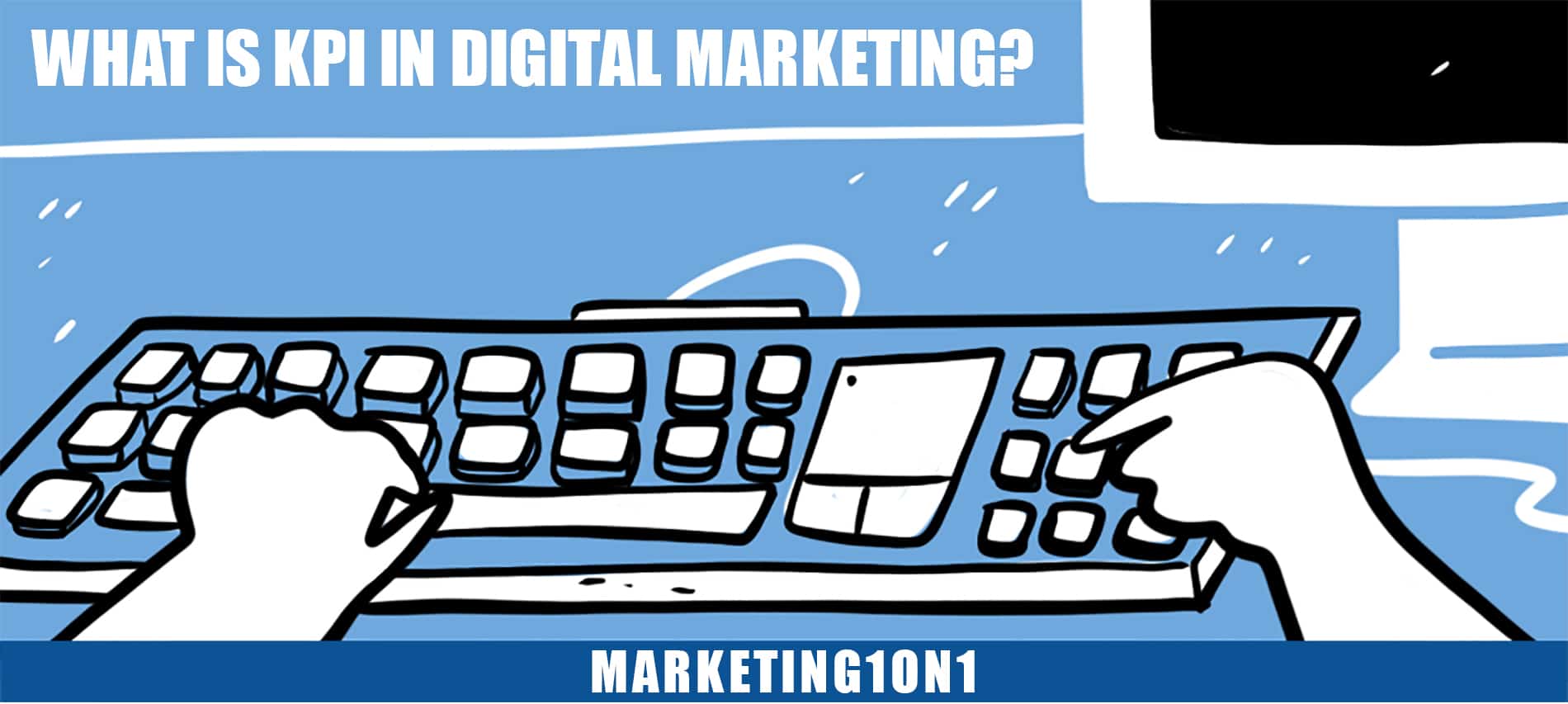- HOME
- CHECKOUT / CART
- LOGIN / REGISTER
- LINK BUILDING
- SEO
- OTHER SERVICES
- RESOURCES
- ABOUT
- About Us
- Why Us
- Testimonials
- INDUSTRIES
- Cannabis CBD Marketing and SEO
- Carpet Cleaning Marketing and SEO
- Cell Phone Repair Marketing and SEO
- Dental Marketing and SEO
- Drug Rehab Treatment Centers Marketing and SEO
- HVAC Marketing and SEO
- Junk Removal Marketing and SEO
- Law Firm Marketing and SEO
- Law Firm Website Design
- Medical and Healthcare Marketing
- Plastic Surgeons Marketing and SEO
- Plumbing Marketing and SEO
- Private Detectives / Investigators Marketing and SEO
- SaaS Marketing and SEO
- CONTACT
What is KPI in digital marketing? |

What is KPI in digital marketing?
KPI, or key performance indicator, is a metric used to measure the success of a digital marketing campaign. There are many factors that go into determining whether a campaign is successful, and KPIs can help you track progress and make necessary adjustments along the way. There are a few things to remember when choosing KPIs for your digital marketing campaigns.
First, make sure they align with your overall business goals.
Second, choose KPIs that you can actually measure and track.
And third, don’t try to track too many KPIs at once – focus on a few key indicators that will give you the most insights into your campaign’s performance.
Not sure where to start? In this blog post, we will explore some of the most common KPIs used in digital marketing campaigns, so you can get a better idea of which ones might work best for your business. Read on to learn more!
What is KPI?
KPI stands for Key Performance Indicator. A KPI is a metric that is used to measure the success of a digital marketing campaign. There are many different KPIs that can be used, but some of the most common include website traffic, conversion rate, and leads generated.
What are the different types of KPIs?
There are four main types of KPIs in digital marketing:
1. Awareness KPIs: These measure how well your brand is known and recognized by your target audience. They can include metrics like brand mentions, social media followers, and website traffic.
2. Engagement KPIs: These measure how engaged your audience is with your brand and its content. They can include metrics like time spent on site, number of page views, and bounce rate.
3. Conversion KPIs: These measure how successful you are at converting your visitors into customers or leads. They can include metrics like conversion rate, shopping cart abandonment rate, and form submission rate.
4. ROI KPIs: These measure the return on investment (ROI) of your digital marketing campaigns. They can include metrics like lead value, customer lifetime value, and revenue generated per visitor.
How to choose the right KPI for your business
There are a lot of factors to consider when choosing the right KPIs for your business. Here are a few things to keep in mind:
1. What is your business goal?
Your KPIs should be aligned with your business goals. For example, if you’re trying to increase brand awareness, you’ll want to track metrics like reach and impressions.
2. What is your target audience?
Think about who you’re trying to reach with your marketing efforts. What demographics are they in? What interests do they have? Your KPIs should be tailored to your target audience.
3. What data do you have available?
Not all businesses will have the same data available to them. You’ll need to choose KPIs that can be measured with the data you have access to. For example, if you don’t have access to website data, you won’t be able to track website traffic as a KPI.
4. How often do you need to measure results?
Some KPIs need to be measured more frequently than others. For example, if you’re tracking sales, you’ll want to measure it on a daily or weekly basis. But monthly or quarterly measurements may suffice if you’re tracking brand awareness.
How to measure KPIs
There are a few key steps to measuring KPIs in digital marketing. First, identify what specific goals you want to track. Then, determine which tools and data sources you need to measure those goals. Once you have your data, calculate your KPIs using the appropriate formulas. Finally, analyze your results and adjust your digital marketing strategy as needed.
By following these steps, you can ensure that you are accurately measuring your KPIs and using them to improve your digital marketing strategy.
The benefits of using KPIs
When it comes to digital marketing, KPIs are key performance indicators that can help you measure the success of your campaigns. By tracking KPIs, you can see which strategies are working and which need to be improved.
There are several benefits to using KPIs in digital marketing:
1. They help you measure progress.
2. They provide valuable insights.
3. They can help you improve your campaigns.
4. They can help you save time and money.
5. They can help you make better decisions.
The drawbacks of using KPIs
There are a few potential drawbacks to using KPIs in digital marketing. First, KPIs can give you a false sense of progress if not used correctly. For example, if you focus on on-site visits as your main KPI, you might be tempted to boost your numbers by any means necessary, including resorting to clickbait or other shady practices.
Second, relying too heavily on KPIs can lead to short-term thinking and decision-making. You might be so focused on hitting your targets that you lose sight of the bigger picture or neglect important long-term projects.
Finally, KPIs are often based on vanity metrics that don’t necessarily reflect the success of your business. For example, social media follower count is a popular metric, but it doesn’t necessarily mean anything regarding revenue or conversions.
If you’re careful and use them correctly, KPIs can be a helpful tool in measuring your progress and making decisions. However, it’s important to keep their potential drawbacks in mind so that you don’t get caught up in chasing numbers instead of real results.
Conclusion
In conclusion, KPI in digital marketing is a key performance indicator that can help you measure the success of your digital marketing campaigns. By understanding what KPI is and how to use it, you can effectively track the progress of your campaigns and make necessary changes to improve their effectiveness.
Our locations and Services:
Find us on Google maps for directions: Digital Marketing | SEO Las Vegas, Digital Marketing | SEO New York, Digital Marketing | SEO Phoenix, Digital Marketing | SEO Houston, Digital Marketing | SEO Atlanta, Digital Marketing | SEO Anaheim, Digital Marketing | SEO Alexandria, Digital Marketing | SEO Austin, Digital Marketing | SEO Calabasas, Digital Marketing | SEO Cleveland, Digital Marketing | SEO Corpus Christi, Digital Marketing | SEO Dayton, Digital Marketing | SEO Detroit,Digital Marketing | SEO Fort Worth, Digital Marketing | SEO Henderson, Digital Marketing | SEO Indianapolis, Digital Marketing | SEO Irvine, Digital Marketing | SEO Jersey City, Digital Marketing | SEO Knoxville, Digital Marketing | SEO Long Beach, Digital Marketing | SEO Los Angeles, Digital Marketing | SEO Medford, Digital Marketing | SEO Mesa, Digital Marketing | SEO New Orleans, Digital Marketing | SEO Palmdale, Digital Marketing | SEO San Jose, Digital Marketing | SEO Santa Clarita, Digital Marketing | SEO Santa Monica, Digital Marketing | SEO Scottsdale, Digital Marketing | SEO Sherman Oaks, Digital Marketing | SEO Seattle, Digital Marketing | SEO Tacoma, Digital Marketing | SEO Torrance

By placing an order, signing up for services from Marketing1on1 LLC or using this website you agree to Terms and Conditions and Privacy Policy
Copyright © Marketing1on1 LLC All rights reserved.
The content of this web site may not be copied, replaced, distributed, published, displayed, modified, or transferred in any form or by any means except with the prior permission of Marketing1on1 LLC.
Copyright infringement is a violation of federal law subject to criminal and civil penalties.
Blog | Accessibility Statement




